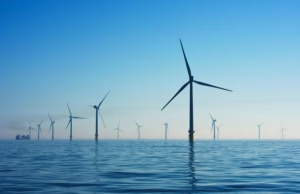Key Impact Points:
- Marine protected areas with fishing bans significantly boost kelp recovery after heatwaves.
- Kelp forest exposure to extreme heat may increase 5X by 2100—even under low-emissions scenarios.
- Just 2.8% of global kelp habitats near continental shores are fully protected from fishing.
Protecting Predators, Protecting Kelp
New Stanford University research reveals that fishing bans in marine protected areas help kelp forests recover from marine heatwaves by preserving predator-prey balances.
When species like California sheephead and spiny lobsters thrive, they keep sea urchins in check—grazers that otherwise devour struggling kelp. “Urchins eat kelp, so preserving their predators indirectly promotes kelp growth,” said lead study author Joy Kumagai.
The study, published in Global Change Biology, found kelp recovery was significantly better in no-fishing zones off southern and central California following the 2014–2016 heatwave. In contrast, areas with even minimal fishing saw little improvement.
The Rising Threat of Marine Heatwaves
A second study, published in Nature Communications, predicts that the intensity of marine heatwaves in kelp forests could more than quintuple by 2100, regardless of emission cuts. Under high-emission scenarios, heatwave intensity could surge up to 16-fold.
“Marine heatwaves that seemed extreme just a decade ago will become commonplace,” researchers warned.
The research used global climate models and a first-of-its-kind satellite-based kelp habitat map. Regions like the Arctic, northern Pacific, and parts of California are expected to face the greatest threat, while areas like Patagonia may serve as climate refugia for kelp.
Marine Protected Areas Make a Difference
Only 2.8% of nearshore kelp forests globally are fully protected from fishing. By contrast, California’s marine protected area network, where at least 10% of kelp habitat is protected, is hailed as a global model.
“This analysis provides robust evidence that protecting marine predators promotes the recovery of marine forests even in the face of prolonged marine heatwaves,” said co-senior author Fiorenza Micheli.
According to co-author Giulio De Leo, “the work illustrates the important role of biodiversity cascades as beneficial for ecological resilience.”
Time and Scale Are Critical
The findings reinforce the urgency of large-scale, long-term protections. “Preserving intact food webs matters, but effects take time and require large-scale protection, as well as extensive long-term monitoring,” said senior study author Nur Arafeh-Dalmau.
These insights are timely as 190 countries aim to protect 30% of Earth’s land and ocean by 2030.
Funding and Global Collaboration
The studies were supported by NASA, the National Science Foundation, and the Lenfest Ocean Program, among others. Contributors include institutions across the U.S., Australia, South Africa, Argentina, and the UK.
As the planet warms, strategic conservation efforts like fishing bans in marine reserves could be key to ensuring kelp forests survive—and thrive.

 Follow SDG News on LinkedIn
Follow SDG News on LinkedIn











